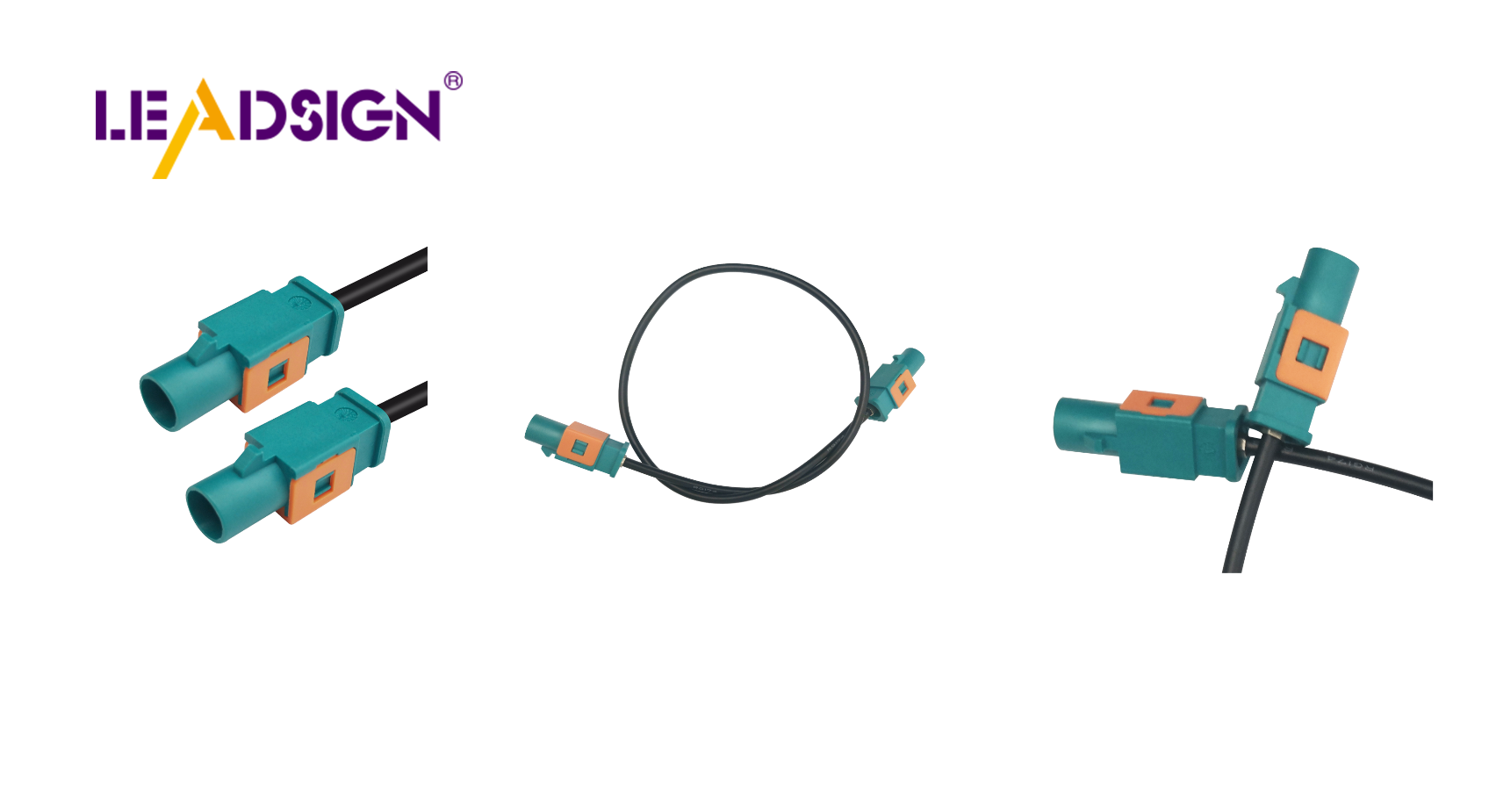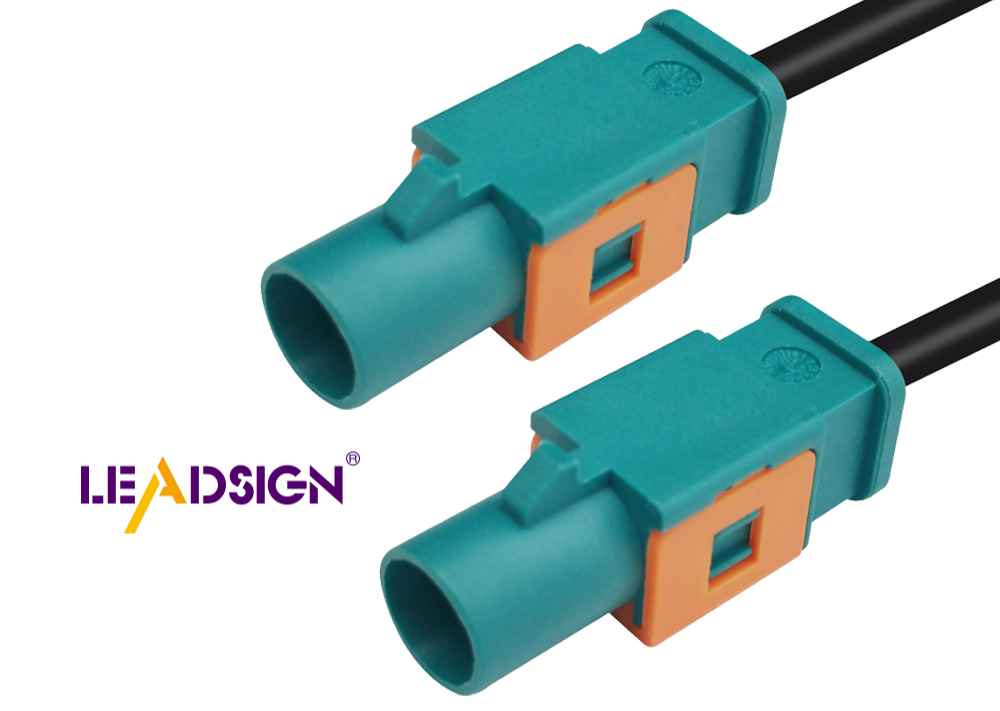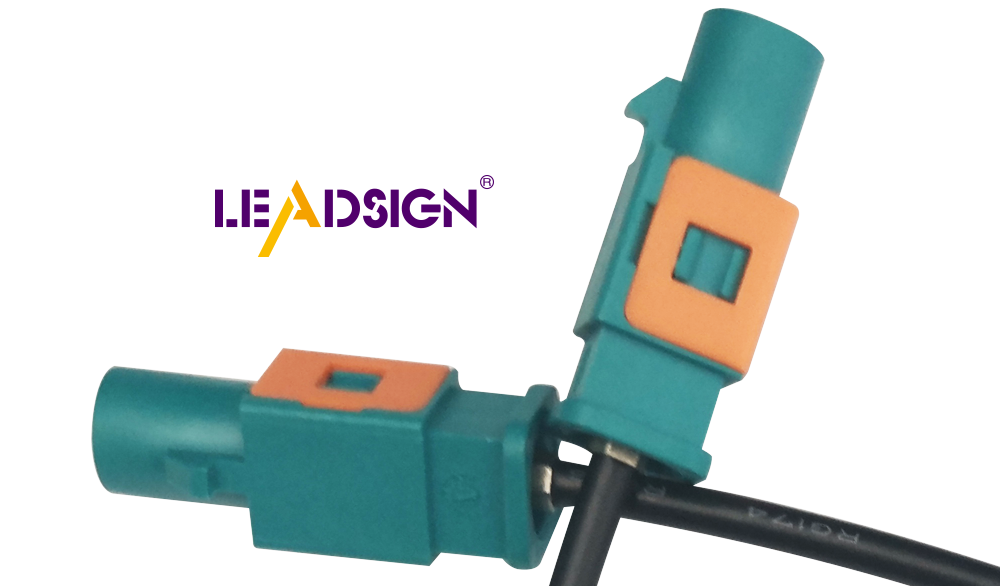Vehicle Connectors Explained: A Complete Guide

Vehicle connectors are very important in cars. They ensure that wires stay connected, allowing the car's electric parts to function properly. These connectors protect the wires and maintain their performance. This is crucial for the overall operation of the vehicle and for safety. By adhering to safety regulations, vehicle connectors prevent electrical issues that could lead to accidents. Proper wiring and connections also comply with industry standards like NEMA. Understanding the significance of these connectors helps you appreciate how they keep your vehicle safe and operating efficiently.
Key Takeaways
Vehicle connectors are essential for ensuring the proper functioning and safety of your car's electrical system.
Different types of connectors, such as wire-to-wire and wire-to-board, serve specific purposes and should be chosen based on your car's needs.
Selecting the right connector involves considering power requirements, environmental factors, and ensuring a proper fit with the wires.
Proper installation techniques, including wire preparation and secure crimping, are crucial for maintaining strong connections.
Regular maintenance, including inspections and cleaning, helps prevent issues like corrosion and overheating, ensuring long-lasting performance.
Understanding the functions of connectors—power transmission, signal transmission, and data communication—can enhance your car's reliability and efficiency.
By following best practices for installation and maintenance, you can save money on repairs and keep your vehicle running smoothly.
Types of Vehicle Connectors

Knowing about vehicle connectors helps keep your car's electric system working. These connectors make sure all parts work well together. Let's look at different connectors used in car wiring.
Wire-to-Wire Connectors
Wire-to-wire connectors join two wires. They make sure signals pass without stopping.
Bullet Connectors
Bullet connectors are common in cars. They have a male and female end that snap together. You can easily take them apart, so they are good for temporary use.
Butt Connectors
Butt connectors join wires end-to-end. They are great for permanent connections. You put wires in each end and crimp them to hold tight. This makes a strong link that handles shakes and stress.
Wire-to-Board Connectors
Wire-to-board connectors connect wires to circuit boards. They are important for linking electronic parts in your car.
Pin Headers
Pin headers are often used in car wiring. They have pins that connect to a board. You can attach wires or other connectors to them, giving design choices.
Terminal Blocks
Terminal blocks help connect many wires to one spot. They have screws to hold wires tight. You can add or remove wires easily, which is good for complex systems.
Specialty Connectors
Specialty connectors are made for special uses, with unique features.
Waterproof Connectors
Waterproof connectors keep water out. They are important in wet places like engine areas. They help your car's electric system work in rain.
High-Temperature Connectors
High-temperature connectors handle heat. They are used near engines or exhausts where it gets hot. They stay strong, keeping connections safe in tough spots.
By knowing these connectors, you can make smart choices for your car's electric system. Each type has a job, helping your car work well and stay safe.
Functions of Electrical Connectors
Electrical connectors are key in your car's electric system. They help power, signals, and data move between parts. Knowing this helps you see how connectors boost your car's work and trust.
Power Transmission
Power connectors move electricity from the battery to car parts. They carry strong currents so each part gets power. For example, they link the battery to the starter motor to start the car. They also join the alternator, which charges the battery as you drive. The voltage rating shows how much power they can safely carry. Picking the right power connectors keeps your car's electric system working well and safe.
Signal Transmission
Signal transmission sends electric signals in your car. These signals control things like lights or the horn. Wire connectors are important here by keeping wires connected. They make sure signals go where needed without stopping. For example, pressing the brake pedal sends a signal to turn on brake lights. Good wire connectors stop signal loss, making sure your car acts right when you use it.
Data Communication
New cars use data to run systems like GPS and safety tools. Electrical connectors help share data between these systems, letting them work together. For example, data connectors join the GPS to the screen for directions. They also link sensors to the car's computer for features like cruise control. The voltage rating of data connectors shows they can handle data flow well. Strong connections help your car's tech work smoothly.
Picking the Best Connector
Choosing the right connectors for your car is important. It helps your car work well and stay safe. You need to think about a few things to make sure the connectors fit your car's needs. Let's look at these things closely.
Power Needs
First, check what power your car parts need. Different parts use different amounts of power. Connectors must handle this power well. For example, the cable from the battery to the starter needs a strong connector. This stops overheating and problems.
Environment Factors
Where the connectors will be used matters a lot. You need to make sure they work well in those places.
Water Safety
Water safety is very important. Some places get wet, like near the wheels. Connectors that keep water out stop rust and shorts. Good water-safe connectors protect your car's wires from water problems.
Heat Safety
Heat safety is also key. Connectors must handle hot and cold places in the car. Near the engine, it gets hot. Strong connectors stay good in heat, keeping connections safe.
Cable Fit
Connectors must fit the wires in your car. If they don't fit, you can have bad connections. For example, if your car uses a certain wire size, the connector must fit it. Right cable fit keeps your car's electric parts working well.
By thinking about power, environment, and cable fit, you pick the best connectors. This makes your car's electric system work better and keeps you safe while driving.
Installation and Maintenance Tips

Installing and taking care of electrical connectors is very important. It helps your car's electric system last long and work well. Follow these tips to avoid problems and keep things running smoothly.
Proper Installation Techniques
Wire Preparation: Get the wire ready first. Carefully remove the cover to show the metal inside. Don't harm it. This makes sure the connection is strong.
Connector Selection: Pick the right connector for the job. Think about how much power it needs and where it will be used. This is important for a safe and good connection.
Insertion and Securing: Put the wire into the connector correctly. Make sure it fits tightly. Use tools to crimp it in place. This stops the wire from coming loose.
Testing the Connection: After securing, test it. Check if it works and there are no loose parts. This step makes sure you did it right.
Regular Maintenance Practices
Routine Inspections: Check your connectors often. Look for wear, damage, or rust. Finding problems early stops surprises.
Cleaning: Keep connectors clean. Dirt can mess things up. Use the right cleaners to keep them clean without harm.
Replacement of Damaged Parts: Change any broken connectors right away. Doing this keeps the system in good shape.
Scheduled Maintenance: Set up a regular check-up plan. Regular care keeps things working well and makes connectors last longer.
Troubleshooting Common Issues
Loose Connections: If connections are loose, fix them fast. Loose ones can cause problems.
Corrosion: Fix rust quickly. Clean it and use treatments to stop more damage.
Overheating: Look for overheating. Make sure connectors can handle the power. Overheating can cause big problems if ignored.
By following these tips for using wire terminals and taking care of your car's connectors, you keep the electric system reliable. Regular care and good installation stop problems and keep your car safe.
Picking the right car connectors is very important. They keep your car safe and working well. Choose connectors that fit your car's needs. Install them properly and check them often. This helps your car stay reliable. Regular checks stop electrical problems. Think about power, where they will be used, and if they fit the wires. Doing this makes your car last longer and saves money on repairs. Keep your car in great shape by using the right connectors.
FAQ
What do car connectors do?
Car connectors are found in many stores. They help your car's electric parts work by keeping wires connected. They are easy to use and very reliable.
Why use auto connectors in cars?
Auto connectors link wires in your car. They need to handle power, stay dry, and fit cables. They keep your car's electric system working well and safely.
What connectors do car makers use?
Car makers use different connectors for cars. Some are circuit boards, round, square, or for charging. Each has a job to keep connections strong.
How do connectors help a car work?
Connectors send power and info to car parts. They make sure each part works right. Good connections keep your car safe and running well.
Why pick the right connector for your car?
The right connector keeps your car safe and working. It sends power and signals well. Think about power, weather, and cable fit when choosing.
How to install car connectors right?
To install, strip the wire, pick the right connector, and secure it. Crimp it tight and test it. This stops loose wires and problems.
How to care for car connectors?
Check connectors often for damage. Clean them to stop dirt. Replace broken ones fast. Regular care makes them last longer and work well.
How to fix common connector problems?
If connectors are loose, rusty, or hot, fix them fast. Tighten, clean, and check power. Quick fixes stop more damage and keep your car's system good.
See Also
FAKRA Connectors Explained: Your Complete Reference Guide
Everything You Need to Know About Ford Fakra Connectors
HSD Connectors Uncovered: An In-Depth Overview
Fakra Connectors 101: Types, Uses, and Essential Insights
Fakra Connectors: Benefits, Uses, and Installation Guidelines

